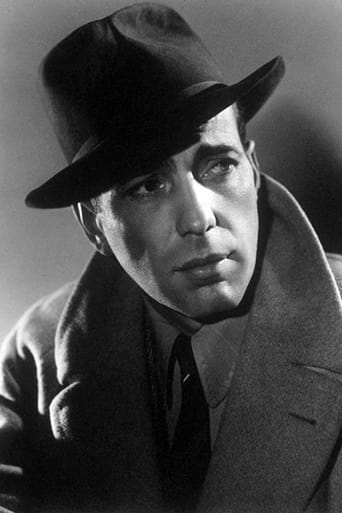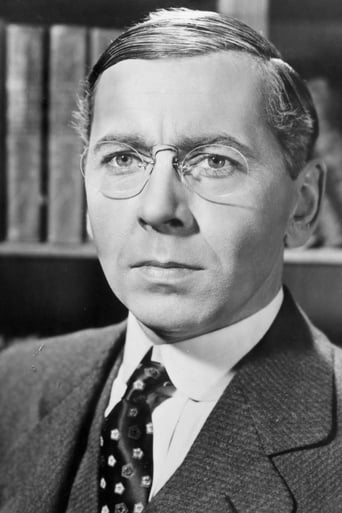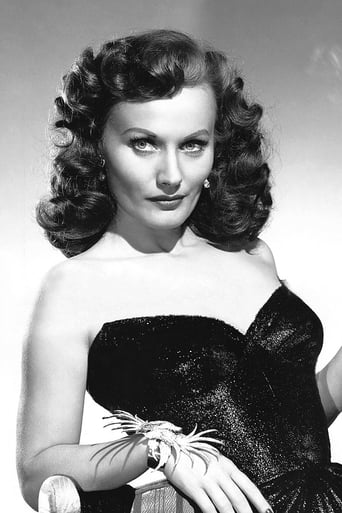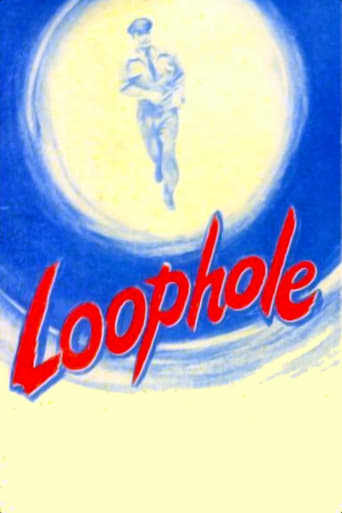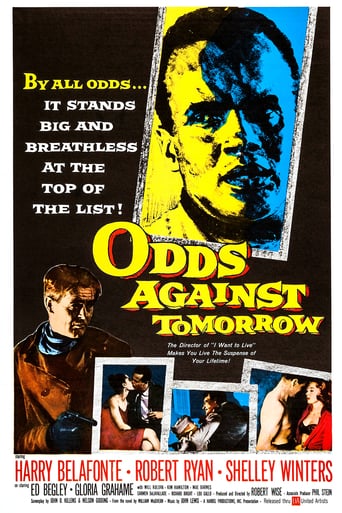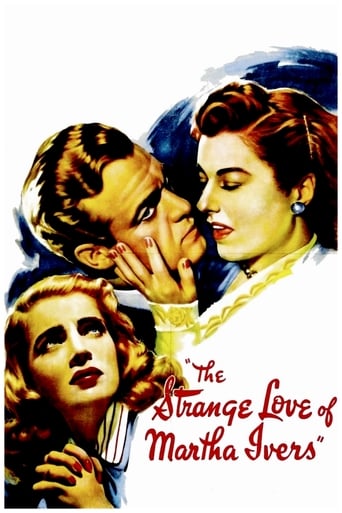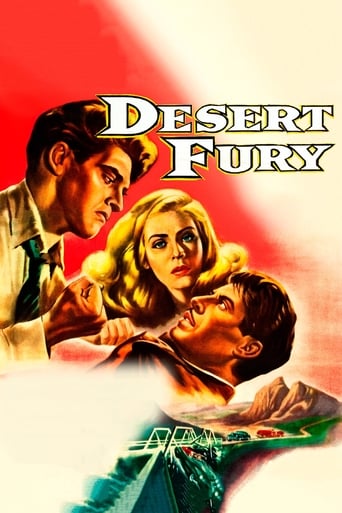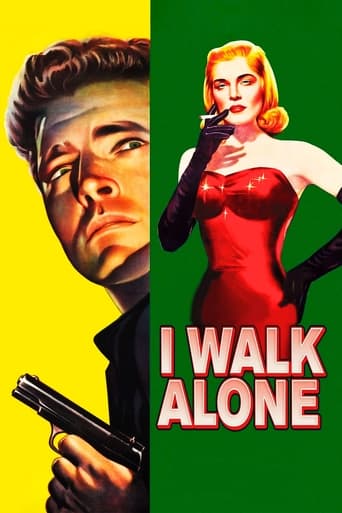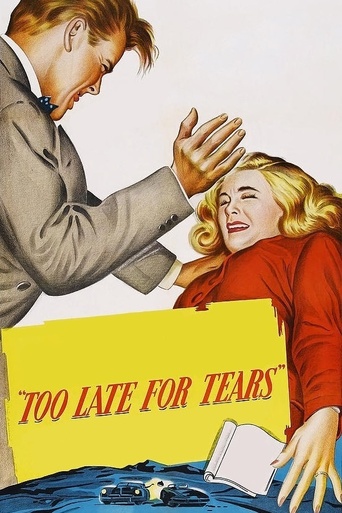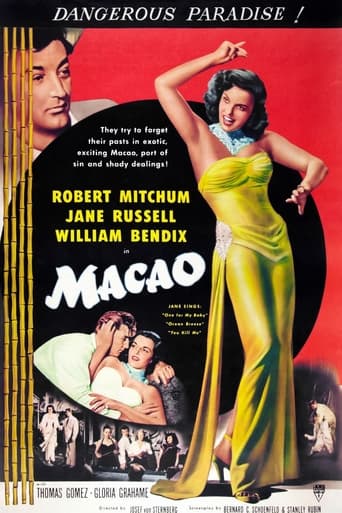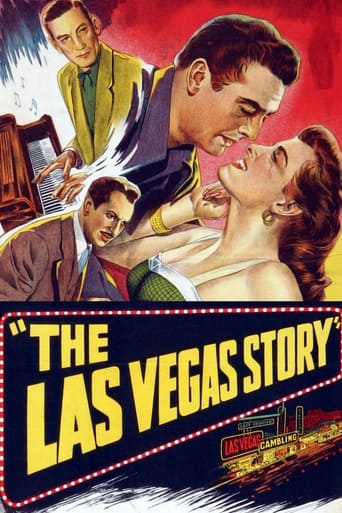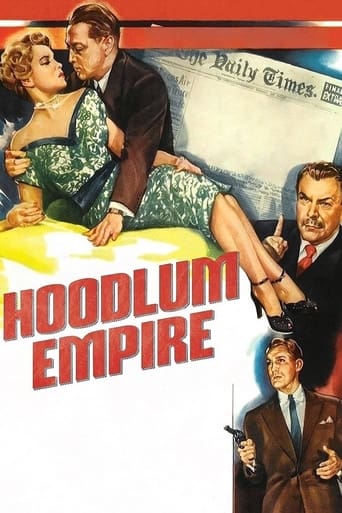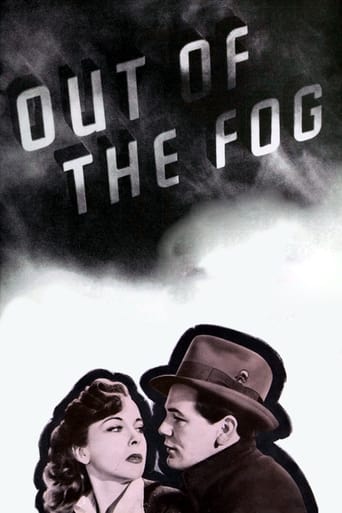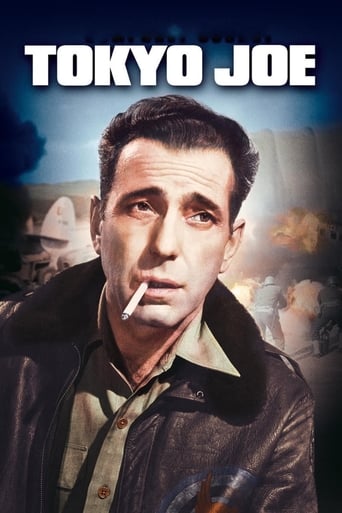
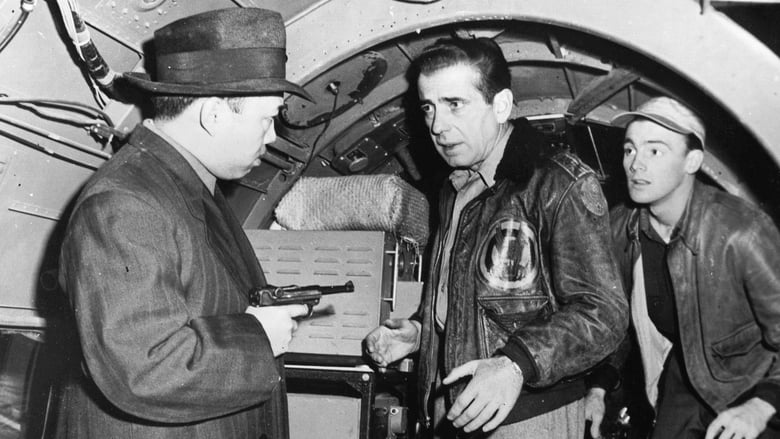
Tokyo Joe (1949)
An American returns to Tokyo to try to pick up threads of his pre-World War II life there but finds himself squeezed between criminals and the authorities.
Watch Trailer
Cast
Similar titles
Reviews
Truly Dreadful Film
Gripping story with well-crafted characters
The performances transcend the film's tropes, grounding it in characters that feel more complete than this subgenre often produces.
The best films of this genre always show a path and provide a takeaway for being a better person.
Bogart is a former nightclub owner who returns to postwar Japan to pick up his life with a wife (Florence Marly) he had deserted, only to find that she had remarried and was the mother of his seven-year-old daughter...In the ensuing complications, Bogart is placed in a position where he must smuggle some Japanese war criminals back into Japan or his daughter will be killed... Then the rest is resistance and heroism, courage and back-fighting. Humphrey Bogart cuts the character quite convincingly and gives us an interesting thriller.Conclusion - Humphrey Bogart is excellent in this film, but it has no other characters of note. This keeps Tokyo Joe from being a classic, in my opinion.
The setting for 'Tokyo Joe' is more interesting than the plot. It takes place in Japan not long after the second world war, during the American occupation. The country is being rebuilt, but times are still tough; at one point, we see Humphey Bogart's character toss a cigarette butt to the sidewalk and several people dive to retrieve it. In what is definitely one of Bogie's lesser vehicles, the story is confusing and at times it's hard to know exactly what Joe Barrett's (Bogart) motivations are. A colonel in WW2, Barrett had also owned a nightclub (shades of Casablanca) in Japan and returns after a few years to see what became of it. He finds it still operating but is frustrated at the amount of American red tape he must go through to re-establish himself as the owner. Then he discovers that his Russian-born wife Trina, whom he thought dead, is alive and remarried to a wealthy businessman named Mark Landis. At first, he is furious and determined to get Trina back, but when he discovers she has a daughter, his daughter no less, his mood softens. Then he meets with a shady Japanese underworld figure to front a small air freight company... Barrett will fly the plane and ask no questions about the cargo. The Japanese crime boss says they will export frozen frogs to North and South America. I'm serious. There is even a point later in the film when crates are being loaded onto a plane and one of them is dropped and comes open. We expect to see guns or drugs spilled out but sure enough, it's a bunch of frozen frogs. Barrett says to hurry and get them loaded before they spoil. Bleccch. Anyway, that's about all you need to know about the plot. Eventually, Barrett is ordered to bring three Japanese baddies, former bigwigs from the war, back to Japan from Korea so they can stir up trouble. An elaborate (well, fairly elaborate) sting operation is set up by American authorities and the plan is thwarted. I wonder how many Bogart pictures tried to copy 'Casablanca' either in part of in whole; 'Tokyo Joe' certainly would be one of them. There is the tragic former romance, the smoky nightclub and requisite mood music ('These Foolish Things' weaves in and out of the picture), the exotic locale and even a Paul Henreid-ish character in Alexander Knox's Mark Landis. Humphrey Bogart gives an adequate performance, lending credibility to scenes and plot devices that don't really deserve it. 'Tokyo Joe' is something of a curiosity, a time-capsule worth a look.
"Tokyo Joe" was one of the first pictures made by Humphrey Bogart's production company, Santana. While it is impressive in that it was the first film to be shot in post-war Japan (no doubt thanks to Bogarts' popularity), it is a weaker, lesser, tedious film. The plot is all too familiar, there is not a really good supporting cast, and Bogart appears to be sleepwalking thru this all to familiar character.The most ridiculous parts being where Bogart is practicing his Judo. His stunt double looks nothing like him.Nothing offensive about this film, other than it's blandness. Pass on this one.5 out of 10
"Tokyo Joe" takes place in post WWII Tokyo, at a time when the city was still under marshal law and controlled by the American occupation forces.Joe Barrett (Humphrey Bogart), an ex pilot returns home to Tokyo. He goes to his now closed nightclub, "Tokyo Joe's" which he owned and operated with his partner Ito (Teru Shimada). Barrett learns from Ito that his wife Trina (Florence Marly) whom he believed to be dead, is alive and living nearby.Barrett rushes to meet her only to discover that she has divorced him and re-married businessman Mark Landis (Alexander Knox). Determined to win her back, Barrett looks for ways to extend his 60 day visitor's visa.Ito brings him to local Japanese "businessman", Baron Kimara (Sessue Hayakawa) who offers to finance a small freight airline which will carry food delicacies, such as frozen frogs into Japan for export abroad. When Barrett declines the offer, Shimara reveals that Trina had made propaganda broadcasts during the war for the Japanese. Trina explains that she had been coerced into making the broadcasts because the Japanese had taken her daughter from her. She tells Barrett that the seven year old Anya (Lora Lee Michael) is really his daughter.In order to be allowed to remain in the country, Barrett decides to accept Shimara's offer and hires two American crewmen, Danny (Jerome Courtland) and Idaho (Gordon Jones) to fly the airplane. Several shipments of frozen frogs later, Barrett suspects that Shimara is about to smuggle Japanese war criminals into the country. To ensure that Barrett carries out the mission, Shimara kidnaps Anya and..............................This was Bogart's second film made by his Santana production company for release by Columbia following the end of his Warner Bros. contract in 1948. Bogey gives his usual excellent performance although his ju-jitzu match (courtesy of stunt men) with Ito, is a little hard to imagine. Sessue Hayakawa had been around films since the early silents, but is probably best remembered for his role as the camp commandant in "The Bridge on the River Kwai" (1957). Alexander Knox who usually played sophisticated villains, is wasted here as Landis.Entertaining, but not among Bogie's best.
